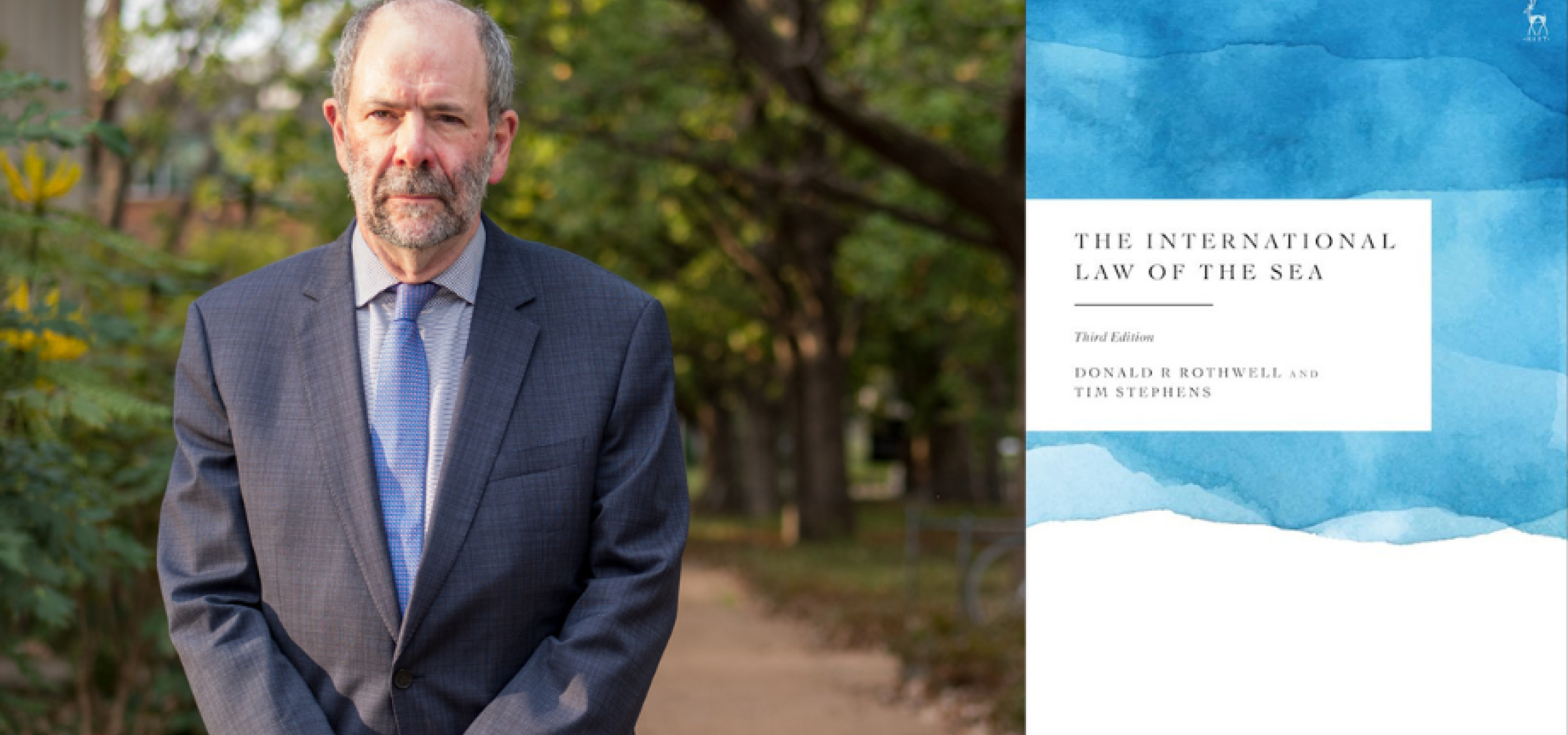
Professor Donald Rothwell said the textbook's third edition represents one of the "core pillars" of his research throughout his academic career as an international law scholar.
There is a need for greater awareness of the importance of the rules-based international order, and the international law of the sea is at the core of that order.
A new edition of The International Law of the Sea (Bloomsbury, 2023) co-authored by two of Australia’s foremost experts on the subject – Professor Donald Rothwell FAAL (ANU College of Law) and Professor Tim Stephens FAAL (Sydney Law School) – provides a comprehensive assessment of the foundational principles and contemporary issues in the law of the sea.
The third edition covers a wide range of topics, including the foundations and sources of the law of the sea, the nature and extent of maritime zones, the delimitation of overlapping maritime boundaries, the place of archipelagic and other special states in the law of the sea, navigational rights and freedoms, military activities at sea, marine scientific research, and marine resource and conservation issues such as fisheries, marine environmental protection, and dispute settlement.
One of the key additions to the third edition is a dedicated chapter on natural and artificial islands. This timely addition reflects the growing importance of maritime infrastructure and the complex legal issues surrounding the status and rights of different types of islands.
Emerging issues in the 2020s
For Professor Rothwell, the new edition also marks a ‘full circle’ moment in his academic career by building upon some of his initial graduate law of the sea research undertaken nearly 40 years ago for a Master of Laws thesis at the University of Alberta in Canada.
“The multiple editions of this book represent one of the core pillars of my research over my academic career,” he said.
“This book is the third edition of a work first published in 2010. Since then, there have been significant developments in the law of the sea.”
One of those developments addressed in the book is the controversial 2016 South China Sea Arbitration, which resulted in a unanimous decision of the five-member Arbitral Tribunal in favour of the Philippines.
While the modern law of the sea is based on the ‘constitution of the oceans’ – the 1982 UN Convention on the Law of the Sea (UNCLOS) – the law is “constantly evolving” and developing as a result of state practice and the decisions of international courts and tribunals, Professor Rothwell said.
“Much of the debate over issues in the South China Sea have a core law of the sea dimension. Likewise, climate change is having a significant impact on oceans especially for islands and islanders. This new edition discusses many of those controversies and challenges,” he added.
Origins of a lifelong interest
Growing up on the New South Wales-Queensland border overlooking the Pacific Ocean, Professor Rothwell’s interest in the law of the sea was sparked at an early age and subsequently fostered during his undergraduate studies.
“When I studied international law at the University of Queensland, I became fascinated in how law sought to regulate the oceans. That sparked a career interest in the law of the sea,” he recalled.
Today he is one of Australia’s leading experts in international law with specific focus on the law of the sea, providing regular media analysis on the many bilateral, regional and global agreements that supplement the UNCLOS.
With nearly 30 authored and edited books and more than 200 chapters and articles, his scholarship has had a far-reaching influence on law of the sea studies. His 2022 monograph, Islands and International Law (Bloomsbury), marked the first book-length study on how public international law operates in relation to islands.
Professor Rothwell has also had a long association with the prestigious Yeosu Academy of the Law of the Sea, which provides education and training on ocean law and maritime affairs for emerging thought leaders from developing nations.
The importance of understanding the law of the sea for law students and legal practitioners is particularly important in an age of changing geo-political realities.
“Any body of law that extends over 71 per cent of the planet needs to be understood,” he said.
“There is a need for greater awareness of the importance of the rules-based international order, and the international law of the sea is at the core of that order. International law is constantly being challenged in multiple different settings and there is a need for not only an awareness but also a technical understanding of the international law governing the oceans.”
Purchase your copy of The International Law of the Sea